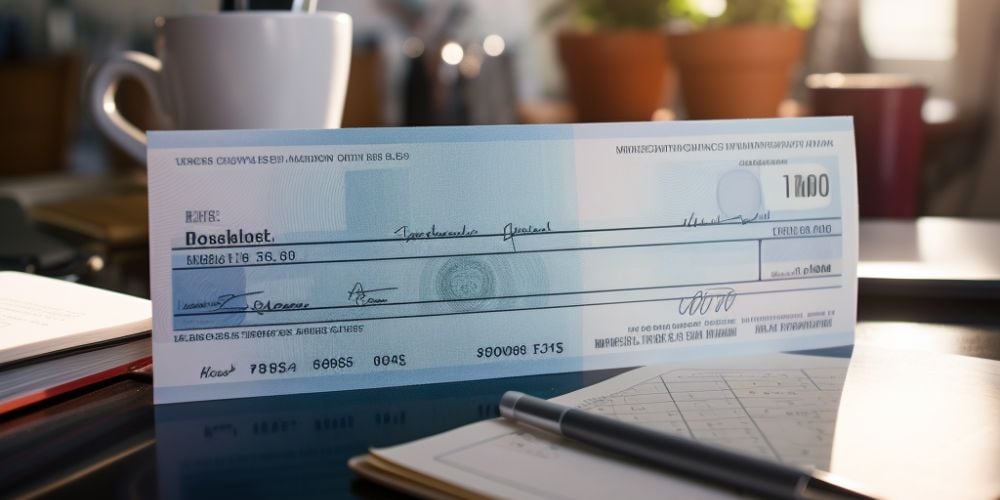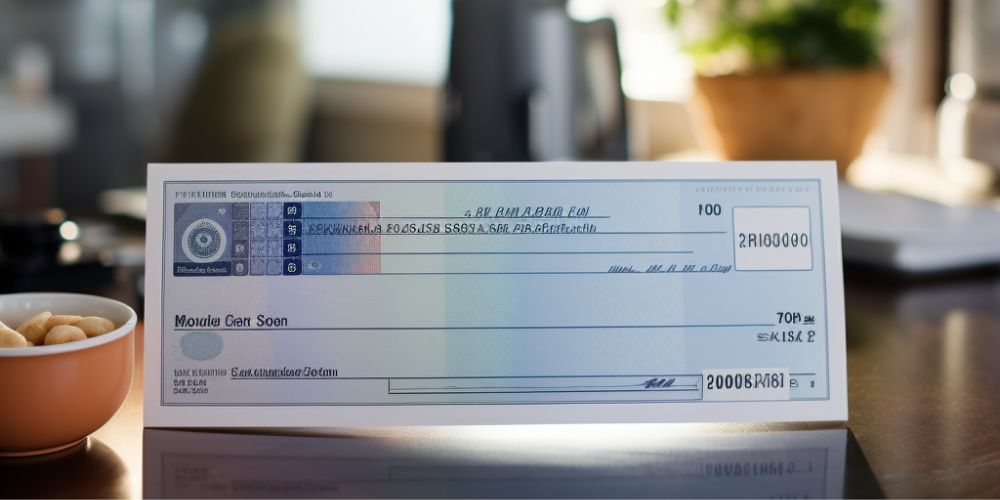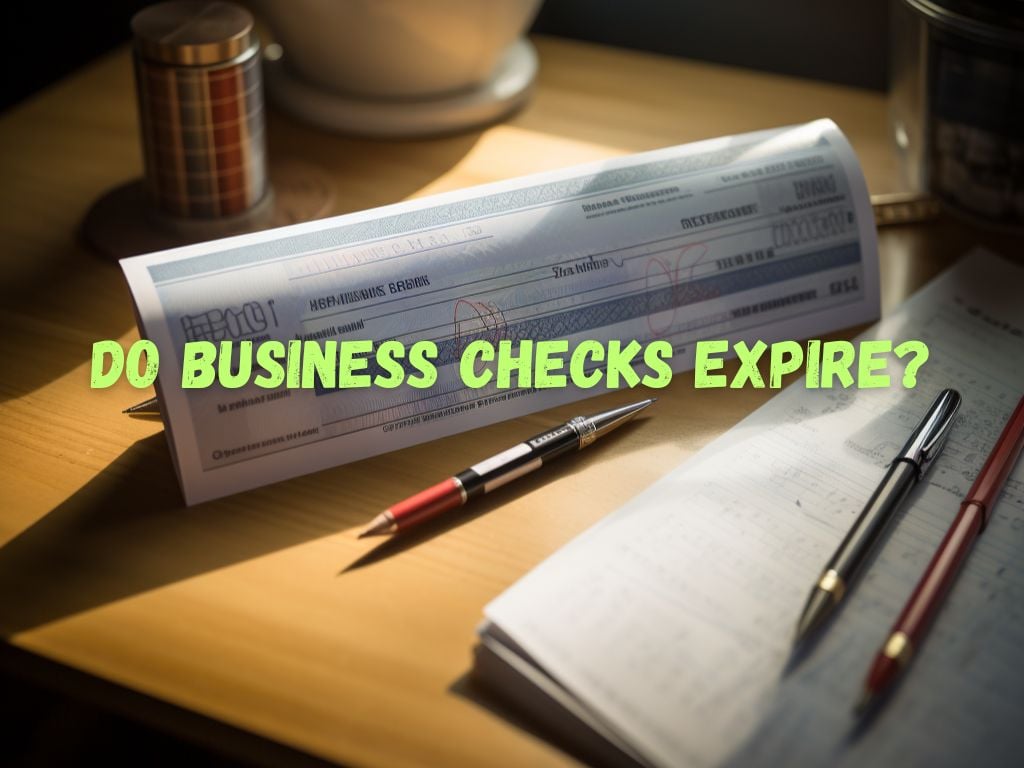Business checks are an essential tool for conducting financial transactions in the corporate world.
However, many business owners and professionals wonder about the expiration of these checks.
In this comprehensive guide, we will explore the world of business check expiration, do business checks expire or not including types of business checks, potential consequences of using expired checks, tips for managing them efficiently, and frequently asked questions associated with this topic.
Understanding Business Checks
Before delving into the expiration of business checks, it is important to gain a good understanding of what they are and how they work.
Business checks are financial instruments used by companies to make payments to vendors, suppliers, and employees.
They come in various types, including payroll checks, accounts payable checks, and general disbursement checks. Each type serves a specific purpose in facilitating financial transactions within a business.
Payroll checks are used for paying employees, while accounts payable checks are utilized to settle outstanding debts to vendors and suppliers.
General disbursement checks, on the other hand, cover a broader range of expenses, such as office supplies, utilities, and miscellaneous business costs.

Do Business Checks Expire?
Business checks typically have an expiration date printed on them, providing a clear indication of their validity.
While individual banks may have different policies regarding the expiration of business checks, it is generally advised to cash or deposit them within six months or 180 days from the date specified on the check.
However, it is essential to note that the expiration of business checks does not render them completely worthless.
Banks can still process expired checks, but they may subject them to additional scrutiny before accepting them for deposit or cashing.
It is advisable to consult your bank’s policy or contact their customer service to determine their specific approach to handling expired checks.
Consequences of Using Expired Business Checks
Using expired business checks can have significant consequences for both the payer and the payee. It is important to understand these potential repercussions to avoid legal and financial complications.
Transaction Rejection
Financial institutions have the right to refuse the deposit or cashing of an expired business check. This can result in a rejected transaction, causing inconvenience and potential delays in payment.
Additionally, the payee may need to find an alternative mode of payment or request a new check, which can disrupt cash flow and strain business relationships.
Penalties and Fees
Banks may impose penalties and fees for attempting to process an expired business check. These charges vary among financial institutions but serve as a deterrent for dealing with expired checks.
It is crucial to consider these potential costs when managing business checks to avoid unnecessary financial burdens.
Legal Implications
Although the Uniform Commercial Code (UCC), which governs business transactions, does not set a specific expiration period for business checks, it emphasizes the importance of timely processing.
If a check is presented long after its expiration date, disputes may arise, potentially leading to legal complications.
To avoid legal implications, it is crucial to follow best practices for check management and prioritize timely processing. There is no good reason to cause yourself potential trouble by waiting several months to cash or deposit a business check.
Potential Impact on Credit
Mishandling expired business checks can negatively impact a company’s creditworthiness. Late or rejected payments can harm a business’s reputation and credit score, making it difficult to secure favorable financial terms and business partnerships in the future.

Tips for Managing Business Checks
Efficiently managing business checks is crucial to ensure timely processing and avoid the issues associated with expired checks.
By following these tips, businesses can improve check management practices and maintain smooth financial operations:
Track Expiration Dates
Maintain a detailed record of all business checks issued by your company, including their expiration dates. This visibility allows you to prioritize checks according to their expiration dates and take necessary action in a timely manner.
Review Regularly
Periodically review outstanding checks and identify those approaching their expiration dates.
This practice enables proactive action, either by reissuing the check or contacting the payee to ensure prompt processing.
Regularly following up on pending checks can help avoid delays and potential expiration issues.
Communicate with Payees
Establish open lines of communication with vendors, suppliers, and employees to stay informed of any potential delays in check processing.
Maintaining good relationships and regular communication can help address issues promptly and minimize the impact of expired checks.
Utilize Electronic Payment Methods
Transitioning to electronic payment methods, such as direct deposits or digital payment platforms, can streamline payment processes and minimize the risk of expired checks.
These methods eliminate the need for paper checks altogether, reducing the chance of expiration and simplifying financial operations.
Secure Check Distribution
Implement secure procedures for issuing and distributing business checks within your organization.
Designate responsible individuals or departments to oversee check distribution to ensure checks reach the intended recipients promptly. This reduces the likelihood of delays and potential expiration issues.
Stay Informed about Banking Policies
Familiarize yourself with your bank’s policies regarding expired checks. Each bank may have different guidelines on accepting expired checks, so it is essential to understand their specific approach.
Contact your bank’s customer service or review their website to gather information about their policies and procedures.
By following these tips, businesses can effectively manage their check processing, reduce the risk of expired checks, and maintain efficient financial operations.
Proactive check management is key to preventing complications and maintaining strong business relationships.

Frequently Asked Questions
What happens if I try to cash an expired business check?
When attempting to cash an expired business check, the bank may either refuse the transaction or subject it to additional scrutiny. It is advisable to contact your bank for their specific policy regarding expired checks.
How long do business checks typically last before expiring?
While there is no universal expiration period for business checks, it is generally recommended to cash or deposit them within six months or 180 days from the date indicated on the check.
Can I extend the expiration date of a business check?
In most cases, the expiration date of a business check is fixed and cannot be extended. It is important to ensure prompt processing to avoid expiration complications.
What can I do if I have an expired business check?
If you possess an expired business check, you may consider consulting with your bank to explore possible options. It is recommended to request a new check if necessary or seek guidance on the next steps to take.
Conclusion
Understanding business check expiration is crucial for businesses to maintain smooth financial operations and foster healthy relationships with vendors and employees.
By grasping the implications of expired checks, implementing effective management practices, and staying informed about banking policies, businesses can navigate the complexities associated with business check expiration and mitigate potential risks.
Stay proactive, vigilant, and well-informed to ensure timely and hassle-free financial transactions within your organization.
Meta Description: “Learn about the expiration of business checks and the potential consequences of using expired checks in this comprehensive guide.”


 Tags:
Tags:










